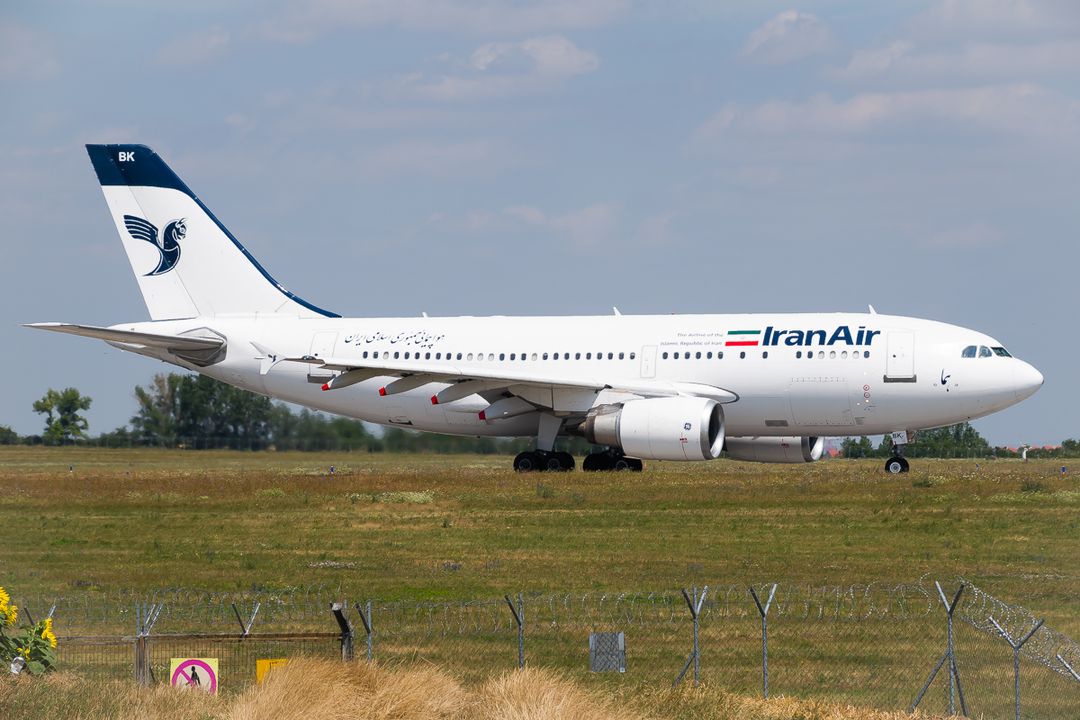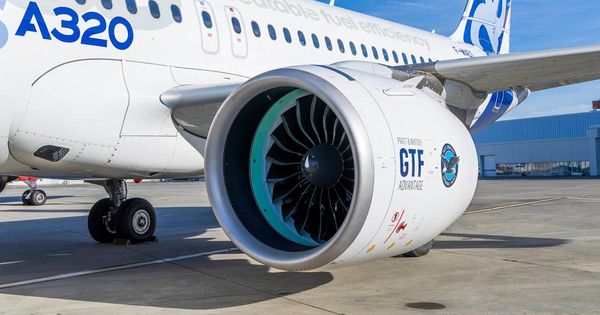In the latter part of 2023 — and early part of 2024 — tensions across the Middle East have escalated. This has extended beyond traditional diplomatic differences, transforming into armed, violent conflicts. As a result, major changes have hit the aerospace industry, raising questions about the role of aviation in these contested areas.
Although the initial conflict in the region pertains to internal conflict between the State of Israel and the State of Palestine and their territories (i.e. Gaza), recent involvement of other states and proxy conflicts leave the situation on the brink of an international war. One such actor is the Islamic Republic of Iran, which recently launched airstrikes in Israel after suspected Israeli-backed airstrikes targeted the Iranian embassy in Syria.

Although motives for the airstrikes in Israel remain complicated, commercial aviation has shifted greatly as a result. In April 2024, German aviation moguls Lufthansa continued to suspend commercial airline activities in the country, including at Imam Khomeini International Airport (IKA) in Tehran. Local Iranian news have established a no-fly zone above Tehran, authorizing it for the use of Iranian military aircraft. Austrian Airlines is the only other Western airline that has been flying into Tehran.
Although Iran has a population of 85 million — around the same as Germany — the economy has remained mainly isolated from foreign markets. Since the change of political power in 1979, the once very industrial and international trade-based economy domesticated most of its industries and pulled out of foreign organizations.
The domestic economy continues to grow in Iran, but repeated international conflicts and ideological differences have kept the country's international footprint relatively modest. Many foreign sanctions have limited domestic industries from acquiring certain foreign materials, making a fully domestic airline industry difficult to grow. As a result, only 21 airlines fly to the country, and only 171 Iranian airplanes remain functional.

The cost of flying has risen in recent years, as labor costs, fuel costs, and other fees have risen seemingly exponentially. In Iran, plane tickets have risen 30% as a result, making any domestic tourism growth plans incredibly hard to scale. Additionally, transportation safety standards are incredibly perilous, with repeated terrorist attacks and foreign military conflicts occurring throughout the country for decades.
As of 2024, flight routes between the West and the East remain contested through these no-fly areas, as parts of Russia, Ukraine, Iran, Armenia, Azerbaijan, and Afghanistan all contain locations with zero commercial flights.
As part of Lufthansa's cease of flights, Western air presence in the Middle East remains minimal, as Middle East-based carriers continue to dominate both domestic and international flights in the region. As these cash-rich airlines continue to reinvest in their offerings, it would be no surprise if their presence will be seen in emerging markets.
GTF Storage Crisis Deepens: 835 Aircraft Grounded as Pratt & Whitney Recalls Surge Post-Mid-Year » GlobalX Secures Rare Authorisation to Operate Intra-Canada Charter Flights » Citation C550 Fireball: Greg Biffle and Five Others Killed in Failed Emergency Landing at KSVH »
Comments (0)
Add Your Comment
SHARE
TAGS
STORIES Informational Iran Iran Air Middle East Airstrikes Israel and IranRECENTLY PUBLISHED
 GlobalX Secures Rare Authorisation to Operate Intra-Canada Charter Flights
Global Crossing Airlines Group, Inc. (GlobalX) has achieved a significant regulatory milestone in its northern expansion strategy. The Canadian Transportation Agency (CTA) has officially granted the Miami-based operator authorisation to conduct intra-Canada charter flights, a permission rarely extended to U.S. carriers.
NEWS
READ MORE »
GlobalX Secures Rare Authorisation to Operate Intra-Canada Charter Flights
Global Crossing Airlines Group, Inc. (GlobalX) has achieved a significant regulatory milestone in its northern expansion strategy. The Canadian Transportation Agency (CTA) has officially granted the Miami-based operator authorisation to conduct intra-Canada charter flights, a permission rarely extended to U.S. carriers.
NEWS
READ MORE »
 GTF Storage Crisis Deepens: 835 Aircraft Grounded as Pratt & Whitney Recalls Surge Post-Mid-Year
The operational crisis surrounding the Pratt & Whitney Geared Turbofan (GTF) engine family has reached a new peak. As of late Q4 2025, the number of stored jets powered by the PW1000G family has climbed significantly, highlighting a widening gap between maintenance capacity and the relentless pace of engine recalls.
INFORMATIONAL
READ MORE »
GTF Storage Crisis Deepens: 835 Aircraft Grounded as Pratt & Whitney Recalls Surge Post-Mid-Year
The operational crisis surrounding the Pratt & Whitney Geared Turbofan (GTF) engine family has reached a new peak. As of late Q4 2025, the number of stored jets powered by the PW1000G family has climbed significantly, highlighting a widening gap between maintenance capacity and the relentless pace of engine recalls.
INFORMATIONAL
READ MORE »
 Ryanair to Appeal $302 Million Italian Fine Over Alleged Travel Agency Restrictions
Ryanair has announced its intention to challenge a €255.8 million ($302 million) fine imposed by Italy's competition authority, which accused the airline of obstructing travel agencies and online booking platforms from selling its flights.
NEWS
READ MORE »
Ryanair to Appeal $302 Million Italian Fine Over Alleged Travel Agency Restrictions
Ryanair has announced its intention to challenge a €255.8 million ($302 million) fine imposed by Italy's competition authority, which accused the airline of obstructing travel agencies and online booking platforms from selling its flights.
NEWS
READ MORE »



